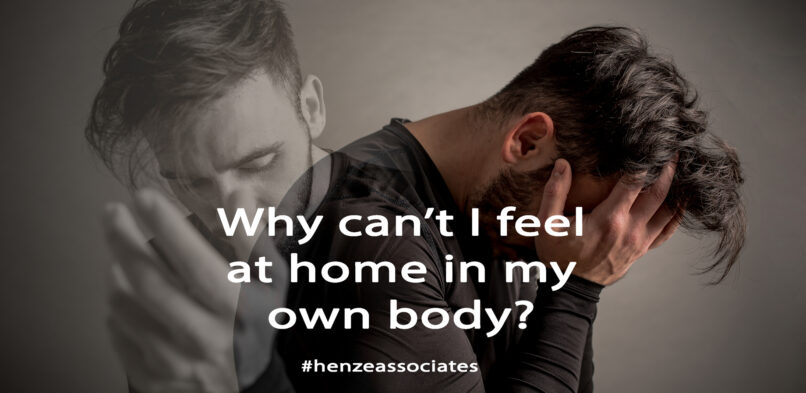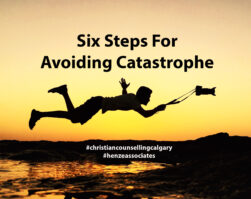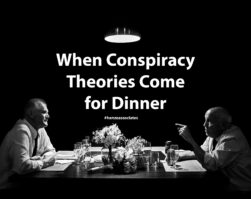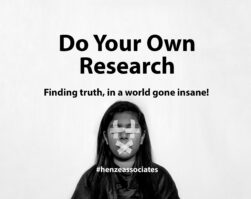Abuse Counselling Calgary: When the memories come, they usually emerge without warning. The rest of the world goes dark, and, in our mind’s eye, a time travel event occurs. Instantly, we find ourselves teleported to another time and place and then frozen and immobilized in our terror.
It sends a shock wave through everything, of course, but the memories are plotting their own path. They care not at all about the time of day, the social situation we happen to be in, the love-making experience we are trying to enjoy or the sleep we so desperately need.
And, then, the sensations rush in. Unwarranted, they surge through our beings, trapping us in a prison made only of our flesh and bones, leaving our hearts pounding and our bodies wracked with tension. Our palms begin to sweat, and that sickeningly familiar metallic taste floods our mouths. Gently at first, and then ever stronger, we start to tremble as the internal tension seeks some kind of expression.
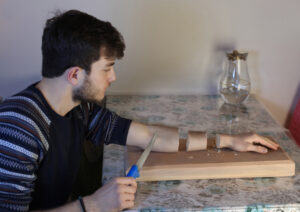 But we fight it, and we fight hard. In desperation, we resort to the only tactic we feel remains:
But we fight it, and we fight hard. In desperation, we resort to the only tactic we feel remains:
We again swing that internal blade.
As we have so many thousands of times before, we commence cutting ourselves off from our bodies as we attempt to slip away to some safe and secluded mental cocoon.
Eventually, it passes. We look normal again to those around us; only we can see the bloodshed and internal wreckage left in its wake. We look at our own eyes in the mirror and wonder who we even see, as we futilely feel around inside for a soul that seems to have evaporated. As we walk out the next hours and days, the emptiness follows us, along with the fear of it all happening again.
And, even after it all subsides, we’re left with the profound sense that we’re broken, and can never be whole again.
Abuse Counselling Calgary: Why can’t I feel at home in my own body?
If we believe the popular media, trauma is a strange and weird experience, one so rare that whatever would cause it would make the news. If you trust the authors of the Diagnostic and Statistical Manual of the American Psychiatric Association, Post Traumatic stress disorder seems to mostly apply to young white men running around foreign lands with assault rifles killing brown people. Those perspectives couldn’t be more disconnected from reality if they tried.
The facts are that 70% of adults experience at least one traumatic event, and 20% of them go on to be diagnosed with PTSD. An estimated 5% of Americans have PTSD at any one time, and women are twice as likely as men to develop this disorder. It’s worth noting that those numbers only include those who are actually diagnosed – the real numbers are likely so much worse.
Then we move to all of us healers: The doctors, nurses, social workers, counsellors and psychologists. Clearly, we’re the ones who are in touch with our feelings and take outstanding care of our emotional worlds, right? The facts here are even starker, with 30% of ICU staff alone being diagnosed with PTSD. (Those numbers, I suspect, you can trust as at least the people around them would not allow PTSD in other staff members to escape notice.)
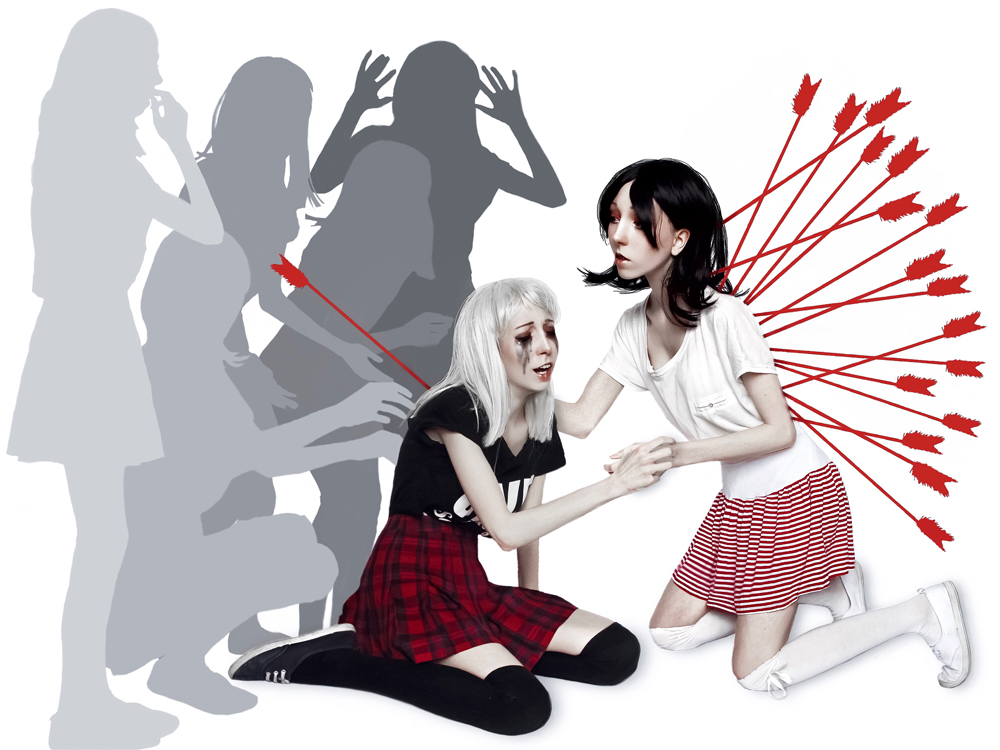 During the opening assembly launching our first year of graduate school, one of the professors walked up to the front and said, “I’d like every one of you to take a look around. 75% of you are here because you just needed to go for counselling. But, you were too dumb to do that and instead opted to pay for an entire master’s degree in a related field.”
During the opening assembly launching our first year of graduate school, one of the professors walked up to the front and said, “I’d like every one of you to take a look around. 75% of you are here because you just needed to go for counselling. But, you were too dumb to do that and instead opted to pay for an entire master’s degree in a related field.”
And, he was right. At least 80% of the people in that room, myself included, were uncomfortably laughing with a look on our faces that clearly said, “Busted.” The absurd reality of how relationally broken and emotionally damaged the entire medical and psychological community is has become so well known that an artist named Isabella Danilejko created this rather intense image:
Trauma Counselling Calgary
So, off we then go to seek healing. Those who are financially less well-off are subjected to brief therapy featuring standard exposure therapy techniques. Those with more money or at least better insurance plans undertake EMDR therapy, which is nothing more than a kinder and gentler version of the same exposure therapy, plus a distracting dot on a light bar that no research has proved does anything.
The genuinely motivated and innovative among us upgrade to ART (Accelerated Resolution Therapy) and sometimes even go so far as to dabble in Ayahuasca, Psilocybin, MDMA or other mind alterant-based trauma therapies. Some simply seek to use drugs (Pharmaceutical and otherwise) to rewire their mental pathways such that the mind-body reactions become muted and the mental anguish of flashbacks cease.
 And, the weird thing is, they all work – sort of. Helping people live with the effects of trauma may not really be healing, but it has its place, and all of our therapists do some work in this category. The symptoms do get reduced, but something inside us knows that we’ve just replaced our primitive means of cutting ourselves off with an advanced psychologically tested version of the same. But, hey, at least we can then pronounce ourselves cured, or something.
And, the weird thing is, they all work – sort of. Helping people live with the effects of trauma may not really be healing, but it has its place, and all of our therapists do some work in this category. The symptoms do get reduced, but something inside us knows that we’ve just replaced our primitive means of cutting ourselves off with an advanced psychologically tested version of the same. But, hey, at least we can then pronounce ourselves cured, or something.
Sadly, most people decide that this is as good as it gets and give up at this point.
Yet, we still feel like we are imposters inside of our own bodies.
Grief Counselling Calgary
But then, there are those among us who are cut from such a different cloth that living as an imposter will never be good enough. Most of us walking this path have already built a foundation of psychological knowledge through formal training or self-directed research and a clear picture of what we are looking to achieve. We are both high expectation and high motivation individuals who are not afraid of encountering emotional distress and working through it. We’ve taken the strength that we needed to survive our pasts and converted it into a drive to face ourselves and the pain that shaped us.
That willingness to embrace pain almost always leads us into a period of intense mourning – often through self-directed therapy. We attend grief share groups, write our way through Freudian sentence completion exercises or multiple burn-letters, pound punching bags until we curl up crying beneath them or express our feelings through art and music.
 And, things do begin to change. This path of grief and embracing our emotional world does start to change things, for at least we have ceased running away. But, it also dramatically escalates the internal confusion we feel. Once there was a sense that we are an imposter inside our own skin; now, we are no longer sure how many imposters there are inside us.
And, things do begin to change. This path of grief and embracing our emotional world does start to change things, for at least we have ceased running away. But, it also dramatically escalates the internal confusion we feel. Once there was a sense that we are an imposter inside our own skin; now, we are no longer sure how many imposters there are inside us.
Still, we do feel better, for at least we are no longer in flight from ourselves, but each knife wound inside our soul tells a different story of another part we have cut off.
And, the tension between all of those exiled parts starts to become painfully apparent.
As does the tension between our bodies and our inner worlds.
Mindfulness-based Cognitive Therapy
Inevitably, as we start to discover how fragmented and chaotic our inner worlds have become, we begin to long for peace. However, as we choose to seek out that peace, we realize that two problems are happening at once:
(1). Parts of our inner world conflict with each other.
(2). We have been at war against our inner world, trying to silence it as a whole.
As we look at those two conflicts, we realize winning either of them never was an option. All we were doing was destroying ourselves to try and protect ourselves. Most of us don’t have to consider that for long before realizing that our only choice is to give up.
 But, then what?
But, then what?
Many of us try highly dissociative meditation styles for a while and do find temporary peace while our minds are blank. Blankness does feel better, and it feels fantastic to get enough control over our minds that we can at least enforce silence and create a kind of mental-reboot.
But, sooner or later we realize, we’ve just been pretending peace, and the problem is still there.
That’s when we start to explore more associative meditation styles, usually termed “Mindfulness-based.” Sadly, this often has little to do with psychiatry/psychotherapy, which sometimes is too busy chasing bandaids, dots on light bars and chemical rabbits down quick fix rabbit holes to be useful.  We often discover that humble Yoga instructors seem to far better grasp the power of simply laying on a mat and observing our bodies and our inner worlds than many psychologists.
We often discover that humble Yoga instructors seem to far better grasp the power of simply laying on a mat and observing our bodies and our inner worlds than many psychologists.
And, when we finally start to focus on listening, that’s where we discover that those parts of us are not the enemy, and we can learn from them.
As we do that, the tension does go down – but we still feel just as fragmented.
Somatic Experiencing
The good news is that, as the tension subsides, we gain the ability to map out our inner fault lines. As we do so, the most significant break of all begins to emerge: The degree to which we cut off our body from our soul.
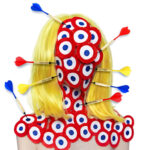 Our bodies somehow physically store a set of memories that seem so toxic and terrifying that distance is our only option. Well, that is, except for when that self-destructive urge to hurt and punish our score-board of a body emerges. We see that when Dr. Beesel van der Kolk titled his masterpiece, The Body Keeps The Score, that he was simply echoing our internal rationale for why it was necessary to cut off our bodies.
Our bodies somehow physically store a set of memories that seem so toxic and terrifying that distance is our only option. Well, that is, except for when that self-destructive urge to hurt and punish our score-board of a body emerges. We see that when Dr. Beesel van der Kolk titled his masterpiece, The Body Keeps The Score, that he was simply echoing our internal rationale for why it was necessary to cut off our bodies.
And, for a change, we no longer like either the distance, or the self-abuse.
When we finally stop and listen to our bodies, we find them cycling through endless portrayals of different failed attempts to defend ourselves from past threats and traumas. Our bodies seem forever trapped in a state of energetic tension, ready to fight, flee, freeze or dissociate, but unable to ever discharge that energy by doing something. Yes, our bodies feel sick, but not in a conventional sense. It’s a perpetual survivalist state of defensive arousal that is making us unwell.
We discover that, instead of silencing the voice of our bodies, we can allow them to finish the job and discharge that defensive energy. The defensive responses, and the terror and rage that go along with them, can orient us to ourselves and allow who we were always supposed to be to emerge.
As counterintuitive as it may seem, we discover that sometimes merely laying there in what Dr. Peter Levine describes as a “Felt Sense” and experiencing our implicit traumatic memories can transform those memories and reconnect our inner world to our physical selves. That’s when the possibility of something more than merely existing in a living death emerges.
But, that’s also when we discover how fragmented our inner worlds have become.
Internal Family Systems Therapy
By this point in the process, authentic hope has generally emerged. We start to realize that we have been designed with a remarkable capacity to endure and even cure trauma. The pain of our pasts can become a doorway to emotional and relational transformation, and that the traumatic fallout of them can catalyze a profound spiritual reawakening.
Little by little, we learn to see the tumultuous and contradictory world of our emotions as a place of fascinating exploration instead of viewing them as an enemy to be defeated. Then, we start to look beneath them, to see the source of those chaotic feelings and urges. And, what opens up is not the realm of monsters and menace that we feared.
 Instead, we walk behind a curtain into a strange preschool filled with wounded parts of ourselves that we once thought were too dangerous to allow to grow up. As we explore there, we discover that those parts are all too willing to communicate with us. Strangely, and no matter how long and hard we search, all of the exiled childhood parts we discover have nothing but good intentions towards us. Immature, yes, chaotic and misinformed, without question, but evil and malevolent, no.
Instead, we walk behind a curtain into a strange preschool filled with wounded parts of ourselves that we once thought were too dangerous to allow to grow up. As we explore there, we discover that those parts are all too willing to communicate with us. Strangely, and no matter how long and hard we search, all of the exiled childhood parts we discover have nothing but good intentions towards us. Immature, yes, chaotic and misinformed, without question, but evil and malevolent, no.
As we get to know those parts, we discover each has a story to tell and a weight of falsehoods that it has carried for us. And, when we hear those stories and replace those burdens with the truth, those parts of us begin to grow up and see the world through ever more informed and nuanced eyes.
But, it’s our perception that changes the most. Where we once saw a shattered and broken inner world, we now see the majestic complexity of what it means to be human. Where there was once a civil war, we now see integration and unity. Where we once experienced ourselves as an imposter faking his or her way through the world of real people, we now share the riches of a vast inner resource pool those parts of us now are freed to offer.
It’s still far from the end of our journey, but that’s when we finally begin to feel at home within ourselves.
Abuse Counselling Calgary: Professional abuse counselling services in Calgary
Fully healing abuse and trauma is not easy; it’s not even easy to read about.
Although it can be challenging to talk about, abuse and the effects of abuse are far from rare and have been extensively studied. Getting help is not just an option; it’s essential. The lack of proper counselling has been linked to higher levels of violence in abusive relationships and an overall increase in early mortality rates. Our abuse counselling services in Calgary can help those who have been abused, as well as their friends and family.
 But the fear is genuine and intense. Many people who need help do not feel comfortable seeking out counselling services for abuse and trauma, and the entire subject of abuse often triggers off legal concerns. To further complicate the matter, the law does not always recognize all forms of abuse and not all persons who have experienced abuse wish to involve the law.
But the fear is genuine and intense. Many people who need help do not feel comfortable seeking out counselling services for abuse and trauma, and the entire subject of abuse often triggers off legal concerns. To further complicate the matter, the law does not always recognize all forms of abuse and not all persons who have experienced abuse wish to involve the law.
Our core mission is not about the legal options that so many fear. We only take steps in this direction when our clients desire it. When desired, we work closely with various sources of Alberta abuse help and refer to organizations like Youth Services Bureau of Calgary, Alberta Legal Services, Family Violence Prevention Centre and others.
There is no one-size-fits-all approach possible, and we don’t try to impose one. What is suitable for one person may not be the best for you. When it comes to talking about abuse, the most critical element is approaching with empathy and understanding.
We provide a gentle, confidential and non-judgmental service to those who have or are experiencing abuse in their past or current relationships. Abuse takes away power and the ability to choose. We give people back the choices they never thought they had to begin with and, if you are looking to take that power back, then reach out for our Abuse Counselling Calgary services today.
